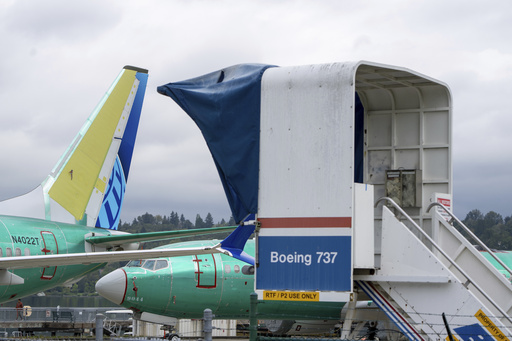A strike by approximately 33,000 Boeing machinists has resulted in the suspension of production for the American aerospace company’s popular airplanes. The workers initiated picketing at Boeing facilities across Washington, Oregon, and California after rejecting a contract offer negotiated and supported by their union. This work stoppage may not have an immediate impact on commercial flights but could lead to significant losses for the company, which is based in Arlington, Virginia, with deep roots in the Seattle area, where most of its planes for airlines are manufactured.
The strike is anticipated to halt production of Boeing’s best-selling airliners like the 737 Max, 777, and 767 cargo plane at factories near Seattle. However, it may not affect the Boeing 787 Dreamliners, which are assembled by nonunion workers in South Carolina. While airlines typically spread out orders for planes over several years, a prolonged strike could result in delays for carriers receiving new aircraft and potentially lead them to keep older planes in service for longer durations.
If the strike persists, Boeing could face significant financial impacts. Based on the duration of prior strikes in 1995 and 2008, analysts project the current walkout could extend into mid-November, causing losses of up to $3.5 billion in cash flow for the company. The workers on strike possess unique skills that are not easily replaceable, granting them leverage against Boeing, which has faced challenges related to safety issues and financial difficulties in recent years.
The striking members of the International Association of Machinists and Aerospace Workers have expressed legitimate concerns about the rejected contract, which offered a 25% pay increase over four years, falling short of the union’s initial demand for a 40% increase over three years. Issues such as eroded benefits and stagnant wages over the past decade have fueled dissatisfaction among the workers. Boeing has expressed readiness to return to negotiations, indicating a willingness to address the concerns raised by the union members.
Moving forward, the resolution of this labor dispute will likely hinge on Boeing’s willingness to meet the union’s demands. Analysts suggest that Boeing may need to consider revisiting the union’s original proposal of 40% wage increases and making other concessions to reach a mutually acceptable agreement. The aerospace company, which has faced a series of setbacks this year impacting both its finances and reputation, is keen on averting further damage by resolving this conflict swiftly and fairly to avoid falling behind its competitors.


